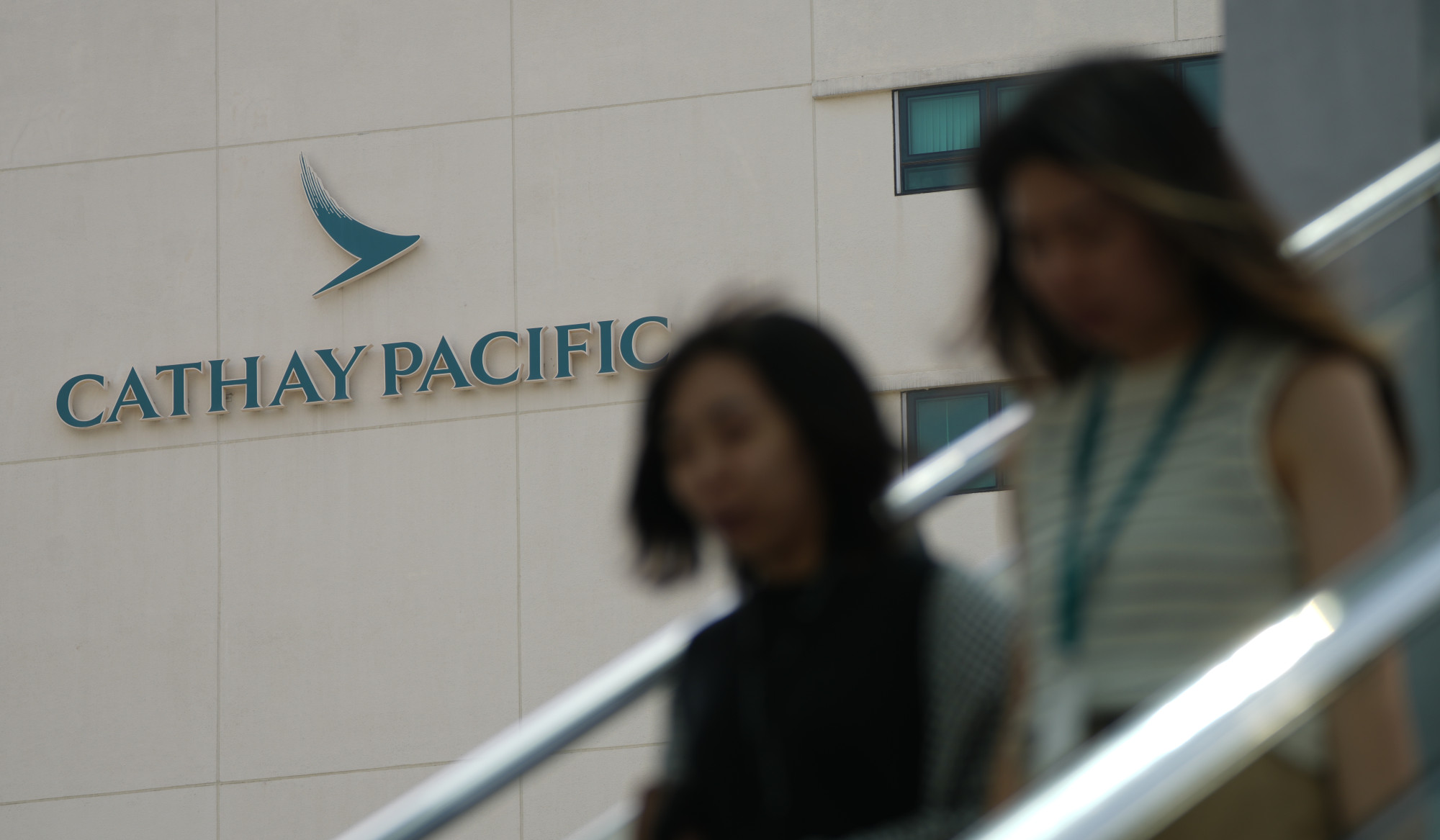
Will Cathay’s latest pay formula for pilots get morale off the ground at Hong Kong flag carrier?
- Pilots’ productivity pay will be calculated based on either hours they are rostered or actual hours they fly, whichever is higher
- Hong Kong Aircrew Officers Association, which represents Cathay’s pilots, says changes will have ‘very little effect’ on what pilots earn
The carrier announced on Friday that pilots’ productivity pay would be calculated on either the hours they were rostered, known as their “published block hours”, or the actual hours they flew – whichever was higher. The change would take effect in October.
Director of flight operations Captain Chris Kempis said the change would bring more certainty to pilots’ pay and showed the airline was listening to staff concerns.
“We will continue to review the competitiveness of our pilot remuneration and benefits, and make changes where suitable and sustainable,” he said.
A Cathay spokeswoman said details of the scheme would be reviewed and refined after six months.

In April, the city’s largest carrier warned against slow taxiing of aircraft, which its pilots were allegedly doing to clock extra time and collect more pay. Authorities accused them of contributing to congestion at Hong Kong’s airport.
Pilots told the Post that while the extra taxiing time did not amount to much, it was a reflection of low morale caused, in part, by the slashing of salaries during the Covid-19 pandemic as part of cost-cutting measures.
In October 2020, Cathay introduced cheaper employment contracts for all cabin crew and pilots, with the latter’s pay reduced by about 40 per cent, as well as lower retirement and housing benefits.
Pilot remuneration consists of the basic salary, monthly allowance and productivity pay, which is tied to the number of hours flown.
The annual basic salary for an entry-level second officer is HK$394,884 (US$50, 470), while an entry-level first officer receives HK$605,508. Top-level captains can get up to HK$1.3 million a year in basic salary.
On top of their basic salary, pilots get a monthly allowance tied to their rank, and productivity pay.
Hong Kong’s Cathay offers junior pilots chance to rise through HK Express ranks
In a statement to the Post, the Hong Kong Aircrew Officers Association, which represents Cathay’s pilots, said the changes would have “very little effect” on what cockpit crew earned. It added morale was at “rock bottom” because of the pay cuts and conditions of service.
The union called on Cathay to address the reasons behind the shortage of experienced pilots, with the airline employing about half the number of captains it had before the pandemic.
Union chairman Paul Weatherilt said the changes had brought the airline in line with the industry standard, with airlines in North America among those that operated this way.
He pointed to the unpredictability of rostered flights impacting pilots, with the contract meaning salaries were pegged closely to productivity, so those who flew a lot would take home more money.
“The real volatility in pay comes from the uncertainty of how many flights you will be given – and can be taken away with roster changes. That is a far greater impact,” he said.
A Cathay spokeswoman said management was aware of pilot concerns regarding roster changes, such as flight cancellations, and in its latest announcement the airline had shared its commitment to delivering a “measurable improvement in this specific area”.
The change is Cathay’s third announcement this week, appearing to address staff concerns and morale.
New aircrew at Hong Kong’s Cathay to earn up to HK$20,000 a month as flights grow
On Monday, Cathay said that from July, cabin crew would see their monthly earnings increase by between 3 and 8 per cent because of productivity pay, which was tied to hours flown.
On Wednesday, junior pilots at Cathay were offered the chance to apply to fly at the airline’s low-cost arm, HK Express, as first officers for two years, with successful candidates then able to join the main carrier with the higher rank.
In January, the airline raised its base monthly salary by 3.3 per cent and increased pilot allowances for certain ranks.
Morale among Cathay staff suffered last month after three crew members were sacked for insulting the English-speaking abilities of some mainland Chinese passengers on a flight to Hong Kong.
At the time, the flight attendants’ union described morale as “extremely low” and in need of desperate attention.
Hong Kong’s Cathay to pay government HK$1.5 billion in dividends by end of month
The Cathay Group, comprising Cathay Pacific and its budget arm HK Express, has set a target of reaching 70 per cent of its capacity by the year’s end and 100 per cent in December 2024.
Amid reduced travel demand during the pandemic, the company axed 5,900 jobs, closed its regional arm Cathay Dragon and initiated a HK$39 billion government-backed restructuring plan.
Earlier this month, airline CEO Ronald Lam Siu-por said Cathay had become cash generative amid a surge in demand and higher airfares than pre-pandemic.
Lam said the carrier would pay the government on June 30 the HK$1.5 billion in deferred dividend payments owed under a recapitalisation deal agreed during the pandemic.
“Our financial position remains healthy,” he said on June 6. “As such, we feel confident that our journey of rebuilding Cathay for Hong Kong is on the right track, and now is the appropriate time to begin repaying the support that the government has shown us.”
The company posted a HK$2.26 billion profit in the second half of 2022, but recorded a net loss of HK$6.5 billion for the entire year.

